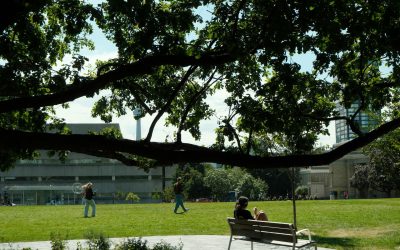In today’s digital society, the ability to understand and critically evaluate the information we receive has become a fundamental skill. The spread of fake news and misinformation is a challenge that affects not only adults but especially younger people, who are often exposed to unverified content on social media and the internet.
That’s why educational initiatives to improve media literacy and digital skills among young people are super important. The educational game Media Masters, developed as part of the European project of the same name, aims to help participants develop critical and conscious thinking when using digital media.
Media Masters educational game shown at Euromadonie
Last May, we presented the educational game Media Masters at Euromadonie, a vocational training center in Termini Imerese. Euromadonie, known for its long experience in vocational training in various sectors, hosted this initiative with the aim of improving the media literacy and digital skills of the participating students.
During the day, young people were able to try out the game, which is designed to help them develop essential skills for navigating the digital world safely and recognizing fake news. The event offered an interactive and engaging experience that stimulated students’ critical thinking skills and encouraged them to reflect on the risks associated with online misinformation.

Goals and benefits of the Media Masters game
Media Masters is a powerful educational tool aimed at improving media literacy through a playful and interactive approach. The game helps each participant recognize the characteristics of fake news and develop strategies for evaluating the reliability of digital information. In this way, students acquire practical digital skills and a critical attitude towards the content they encounter on a daily basis.
The activity also promoted collaboration and the exchange of ideas among participants, encouraging shared and dynamic learning. The positive feedback received demonstrates how this type of approach can be effective in enhancing digital skills in an educational context.
The event at Euromadonie represented an important step in promoting advanced digital skills among young people. The Media Masters game has proven to be an innovative and functional tool for improving digital literacy and developing the critical thinking skills needed to face the challenges of the contemporary media world.

The Media Masters game was also an essential part of the Conference on the impact of fake news in European Democracies, which took place in Palermo at the end of May and saw several young people actively engage with experts in traditional and digital media, as well as civic activism and rights.
In a time when misinformation can influence opinions and behaviors, it is essential to continue investing in educational programs that promote conscious and responsible navigation in the digital world.
Initiatives such as this contribute to shaping a new generation that is better prepared, more critical, and more attentive to the accuracy of information.
To find out all the latest news about the project, write to Enrico Casacchia: enrico.casacchia@cesie.org.
About the project
MEDMAS – Media Masters is a project funded by European Education and Culture Executive Agency (EACEA) CERV-2023-CITIZENS-CIV (Citizens’ engagement and participation – 2023).
Partners
- PISTES SOLIDAIRES (France, coordinator)
- POLITISTIKO IDRYMA 1948 (Cyprus)
- INNOVATION HIVE – KYPSELI KAINOTOMIAS (Greece)
- MUSEO DEI BAMBINI SOCIETA COOPERATIVA SOCIALE (Italy)
- INSTITUTO IKIGAI ASOCIACION ESPANOLA PARA EL EMPRENDIMIENTO Y EL DESARROLLO PERSONAL Y PROFESIONAL (Spain)
- CESIE ETS (Italy)
- VOXEUROP SCE (France)
- Faculty of Journalism and Mass Communication, Sofia University (Bulgaria)
- UNIVERZA V MARIBORU (Slovenia)
- YOUNET APS (Italy)
- CASORIS, ZAVOD ZA INFORMIRANJE IN IZOBRAZEVANJE (Slovenia)
- Udruga za promicanje tehnicke kulture Makerspace Varazdin (Croatia)
Per ulteriori informazioni
Leggi la scheda progetto.
Contatta Enrico Casacchia: enrico.casacchia@cesie.org.

Funded by the European Union. Views and opinions expressed are however those of the author(s) only and do not necessarily reflect those of the European Union or the European Education and Culture Executive Agency (EACEA). Neither the European Union nor EACEA can be held responsible for them.









